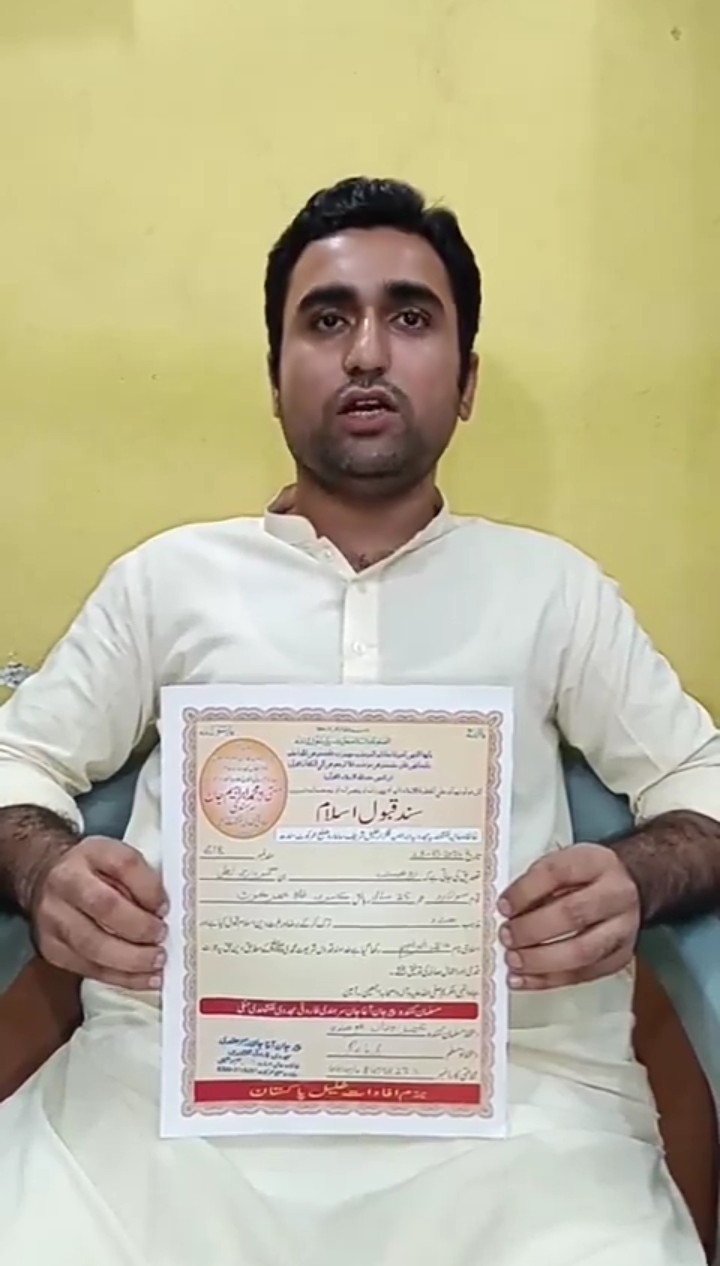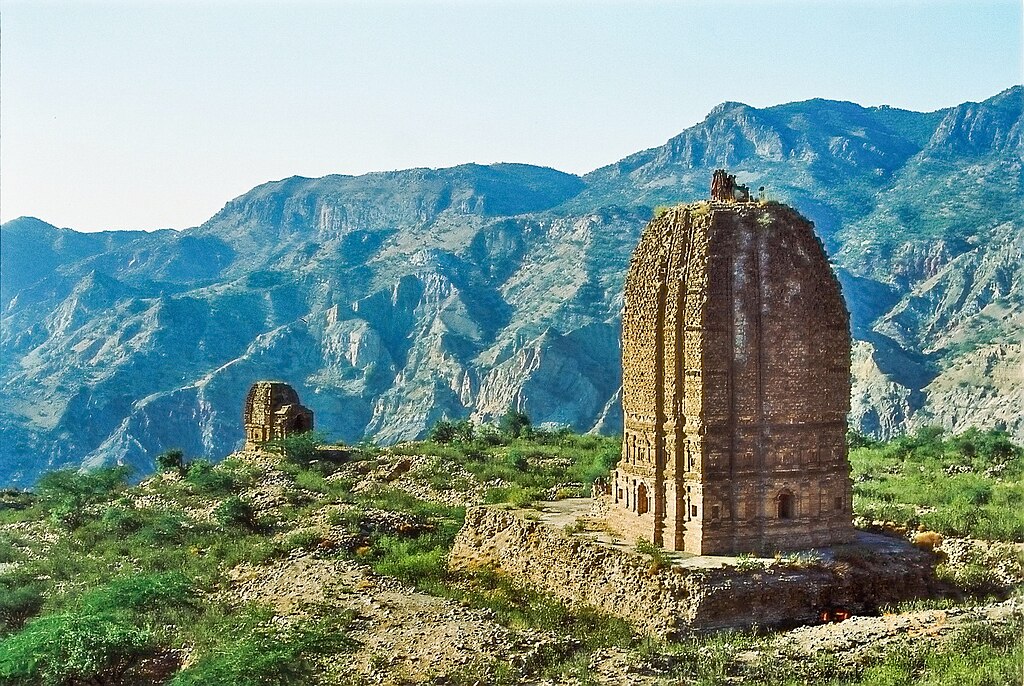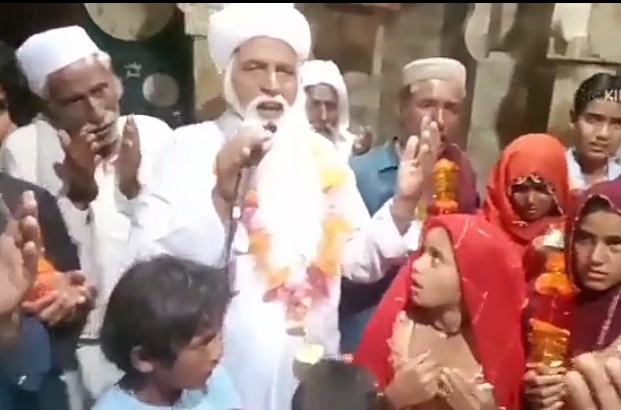As the vibrant festival of Diwali approaches, a time meant for celebration and joy, the sad news from Umarkot Kunari, Sindh. casts a dark shadow over the festivities. Rohit Kumar Sonaro, a young Hindu man from the Kanarese community, has reportedly converted to Islam, adopting the name Muhammad Ibrahim under circumstances that highlight the grave challenges faced by religious minorities in the region.
Rohit’s conversion, orchestrated by Pir Agha John Sirhandi, is not merely a personal choice; it is a stark representation of the coercive pressure that many educated youth from various faiths are experiencing. Unfortunately, Rohit’s situation is emblematic of a broader trend where individuals feel compelled to abandon their beliefs to escape persecution. According to reports, he was falsely accused of blasphemy, a charge that can carry deadly consequences in a society where justice for non-Muslims is often elusive.
The reality is grim: Rohit, son of Gurdari Lal, was forced to navigate a life-threatening predicament. With the threat of mob violence looming over him, he felt he had no option but to convert in order to save his life. This tragic decision underscores a disturbing pattern in Pakistan, where minority communities, particularly Hindus, face systemic oppression and violence that can lead to forced conversions, kidnappings, and even death.
The plight of Rohit Kumar Sonaro is not an isolated incident; it reflects a chilling narrative that many in the minority community endure daily. Hindu women have long been victims of forced conversions and abductions, but now Hindu men are also increasingly finding themselves in similar perilous situations. With the absence of effective legal protection, these individuals often find themselves at the mercy of a society that frequently prioritizes religious conformity over human rights.
The global community, including prominent social organizations and the United Nations, has shown a concerning lack of urgency in addressing these human rights violations. The apathy towards the suffering of religious minorities in Pakistan raises important questions about the commitment to uphold the principles of justice and equality for all.
As we approach Diwali, a festival symbolizing the triumph of light over darkness, it is crucial to reflect on the realities faced by those less fortunate. The stories of Rohit and countless others serve as a call to action for individuals and organizations around the world. Standing in solidarity with minority communities and advocating for their rights must become a priority.
In conclusion, the story of Rohit Kumar Sonaro is a reminder of the urgent need for change and awareness regarding the persecution of religious minorities in Pakistan. It is time to amplify the voices of those who suffer in silence and work towards a society where every individual, regardless of their faith, can live freely and safely. We must unite under the banners of #StopConversion and #SaveHindus, ensuring that the darkness of oppression does not overshadow the spirit of hope and justice that we all seek.
#StopConversion #SaveHindus
For more updates and detailed coverage of this case and other issues affecting the Hindu and Sindhi communities in Sindh, Pakistan, stay tuned to Sindh Renaissance.






